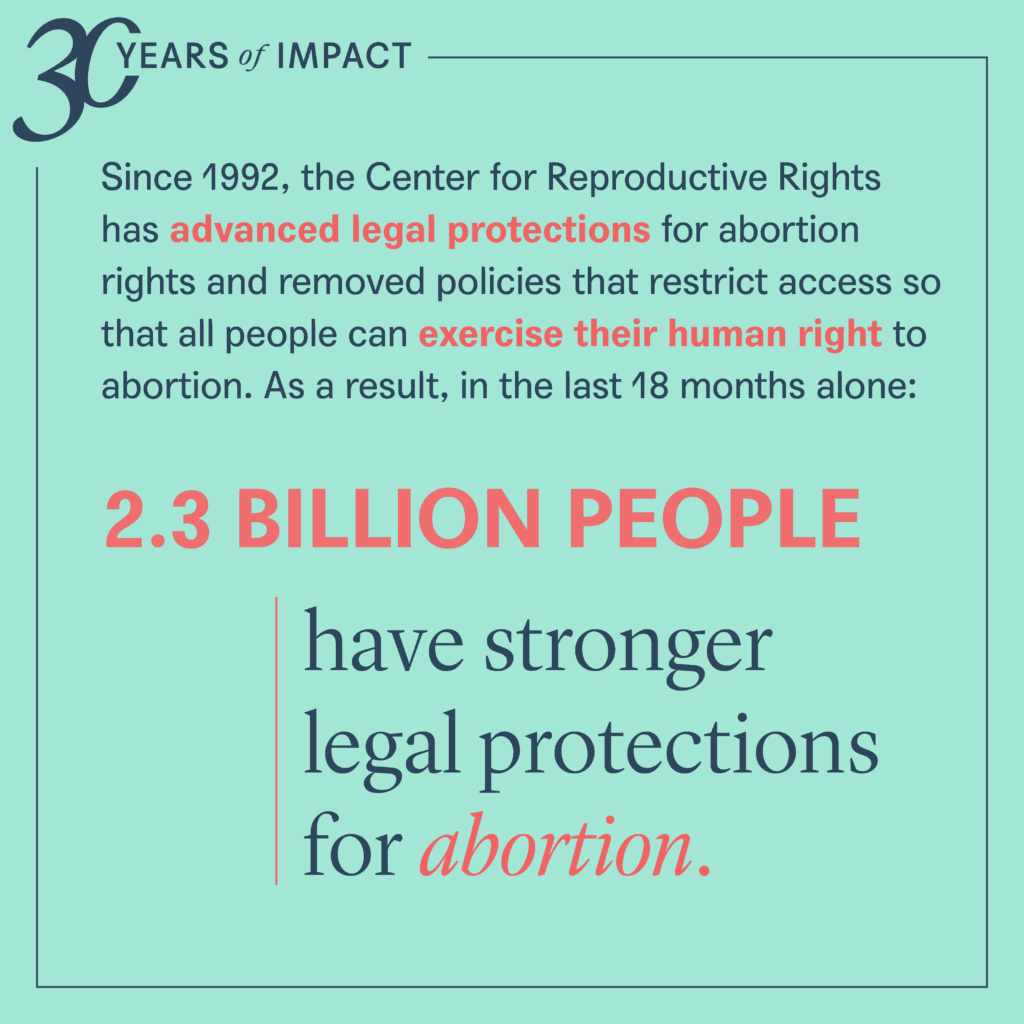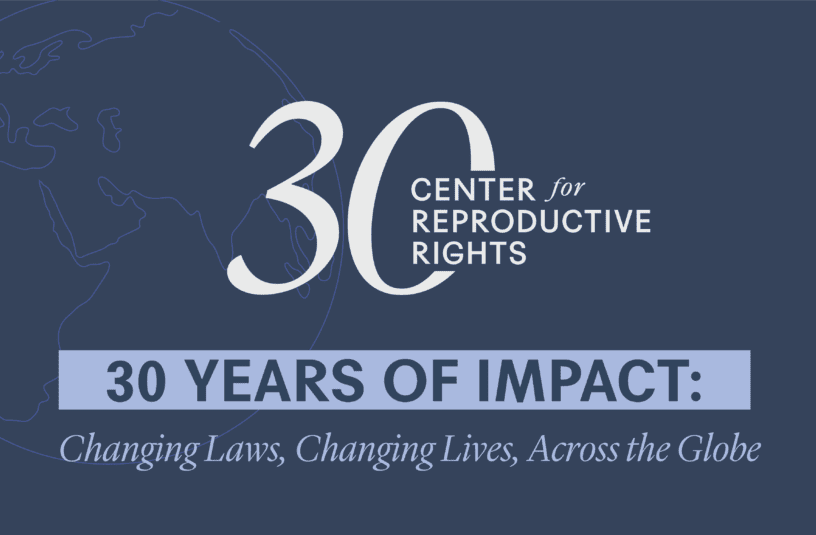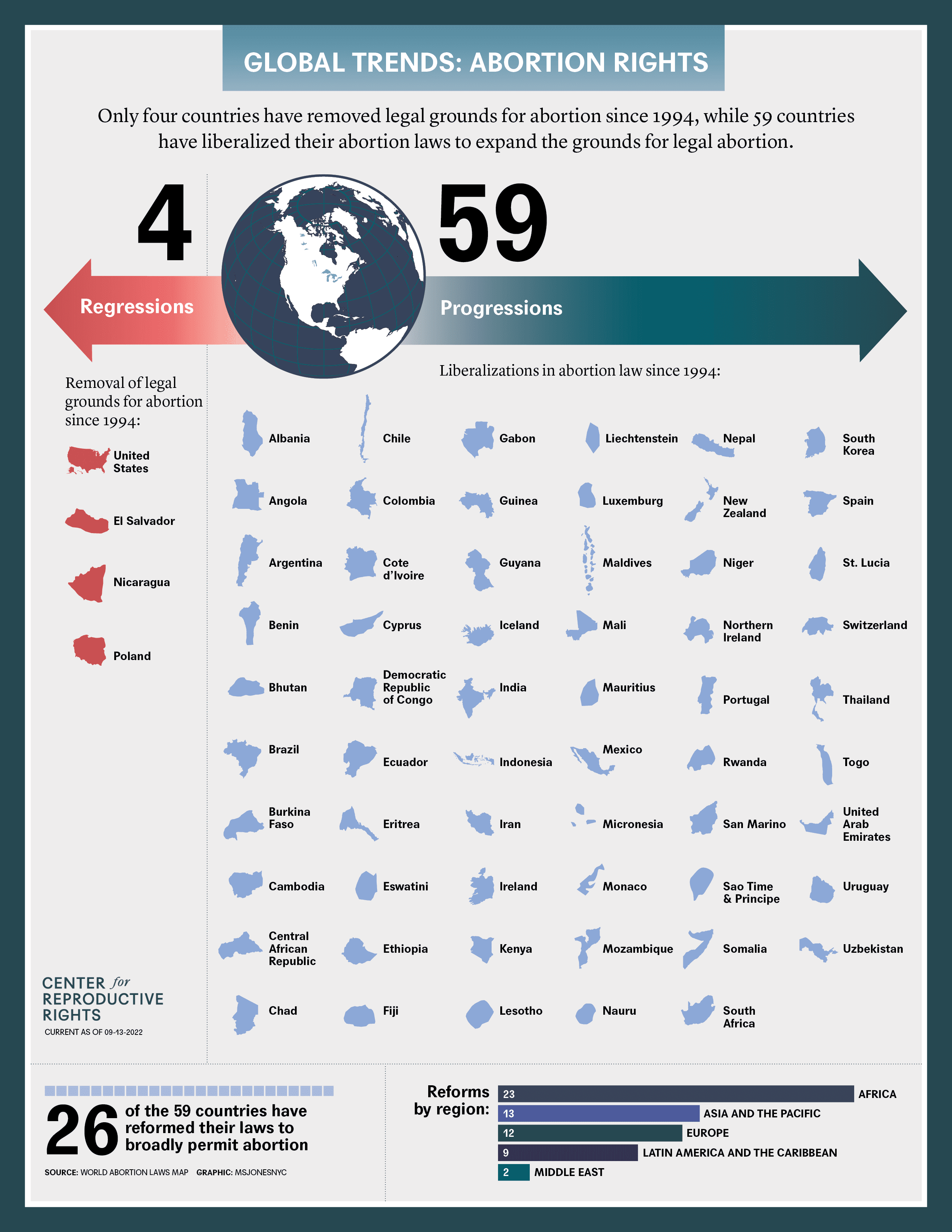30 Years of Impact: Advancing Abortion Rights

Abortion is essential health care, and critical to our human rights to health, dignity, equality, and equal participation. Over the last 30 years, the Center has been working to transform abortion law and policy worldwide, so that every person has access to this care.
The Center has brought groundbreaking abortion rights cases in national courts, United Nations committees, and regional human rights courts and bodies around the world.
In 2022, the Center achieved notable victories that will expand reproductive freedom for millions of people, including in Kenya, where the High Court of Malindi affirmed that abortion care is a fundamental right under the Constitution. And in Colombia, the Constitutional Court issued a ruling decriminalizing abortion up to 24 weeks of gestation, a move expected to help end criminal prosecution of women, girls, and abortion providers.
Global Trends: Abortion Rights
The Center’s infographic showing countries progressing and regressing on abortion rights.
Global Trend is Liberalization of Abortion Laws
For decades, the overwhelming global trend has been towards liberalization of abortion laws and increased access to services. Since 1994, nearly 60 countries have liberalized their abortion laws and only four countries—the U.S., El Salvador, Nicaragua, and Poland—have removed legal grounds for abortion.
The U.S. joined this group of outliers when the U.S. Supreme Court eliminated the constitutional right to abortion in Dobbs v. Jackson Women’s Health Organization earlier this year. Since that ruling, the Center has worked with our partners to fight back: suing in state courts to block abortion bans that had previously been unenforceable, supporting state ballot initiatives, and working to advance proactive state legislation and federal legislation—such as the Women’s Health Protection Act to protect abortion access nationwide.
The Center and our partners will continue to work worldwide to build stronger legal protections so that every person can exercise their right to reproductive autonomy.


